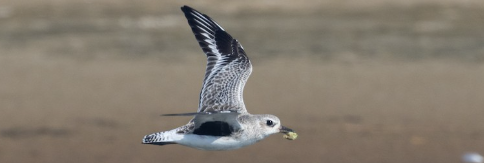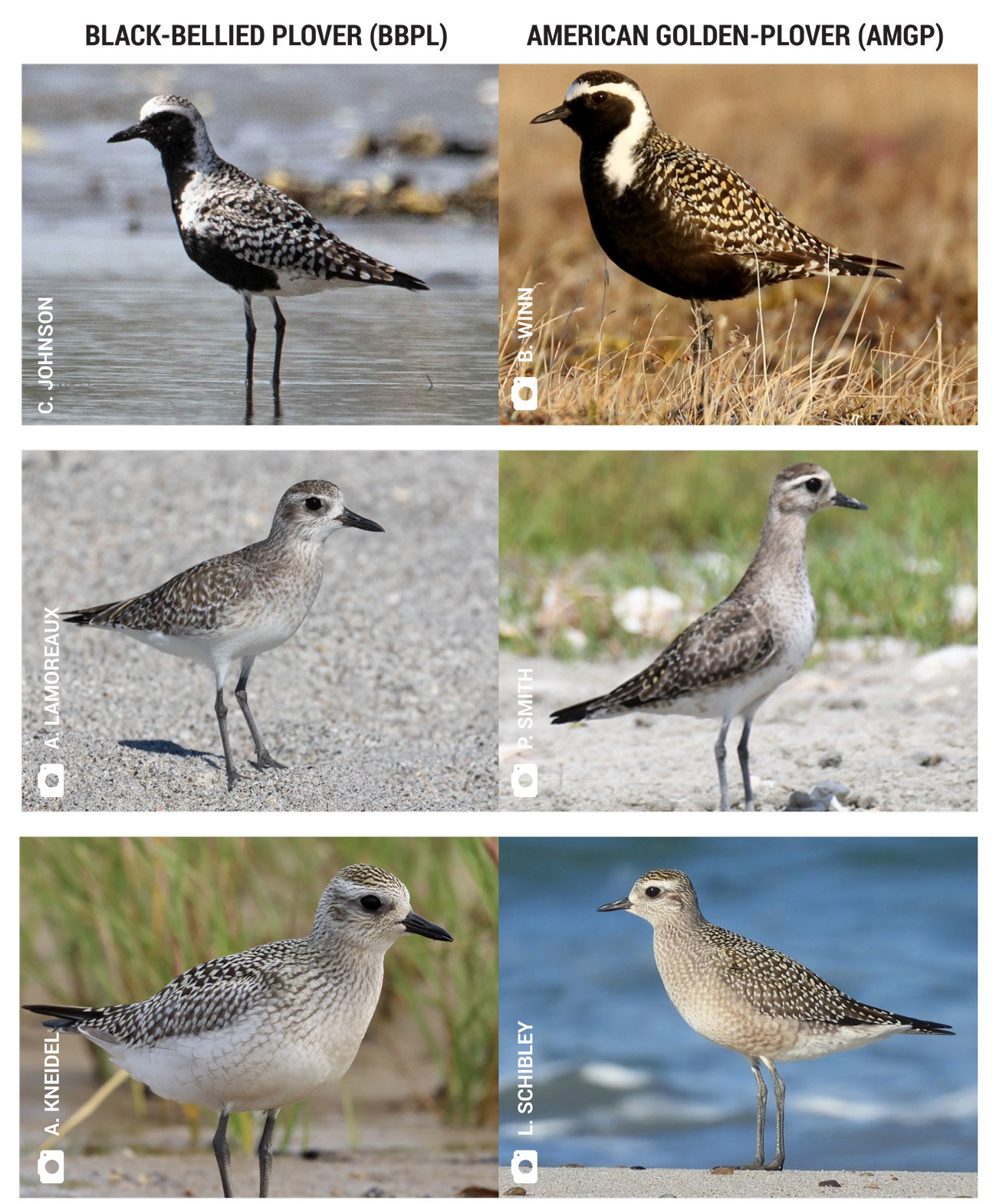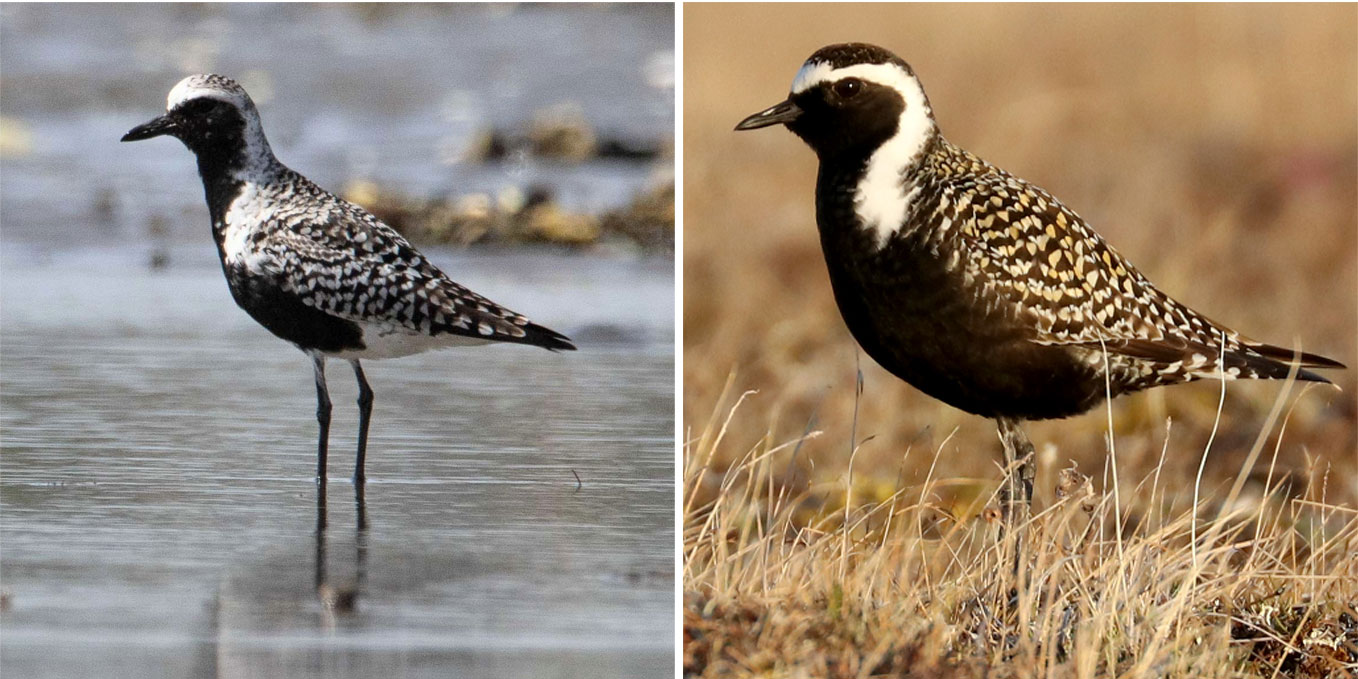
Lisa Schibley
NORTH AMERICAN COORDINATOR FOR THE INTERNATIONAL SHOREBIRD SURVEY
The Black-bellied Plover (BBPL) and American Golden-Plover (AMGP) can be tricky to distinguish. Here are some pointers to help out! In all plumages, check out the bill – thinner, shorter, and more delicate for AMGP, chunkier for BBPL. In flight look for black wingpits and white rump on BBPL. (photo below)

Breeding Plumage
- -Extensive white on head, neck, and sides of the breast for BBPL. AMGP have a black cap.
- -Black undertail on AMGP. In molting adults, the black underneath will be spotty and confusing. If the spotting continues through to the undertail, it’s a AMGP.
- -Adult AMGP has gold spangled upperparts but be wary of bright BBPL in juvenile plumage.
Non-Breeding Plumage
- -In all plumages, AMGP will often look smaller-headed with a thinner neck.
- -Contrast between the dark cap and white eyebrow will be stronger on AMGP.
- -Undertail coverts on BBPL are mainly clean snowy white. AMGP will often have some smudginess.
Juvenile Plumage
- -The brightest young BBPL can have more gold on its back than a dull AMGP, don’t be fooled!
- -Marks on BBPL chest and belly will trail off higher, often ending at a distinct line.
- -Undertail coverts are more likely to be marked on AMGP.

There is always more to explore! Learn about Manomet’s International Shorebird Survey here.





 Back to all
Back to all